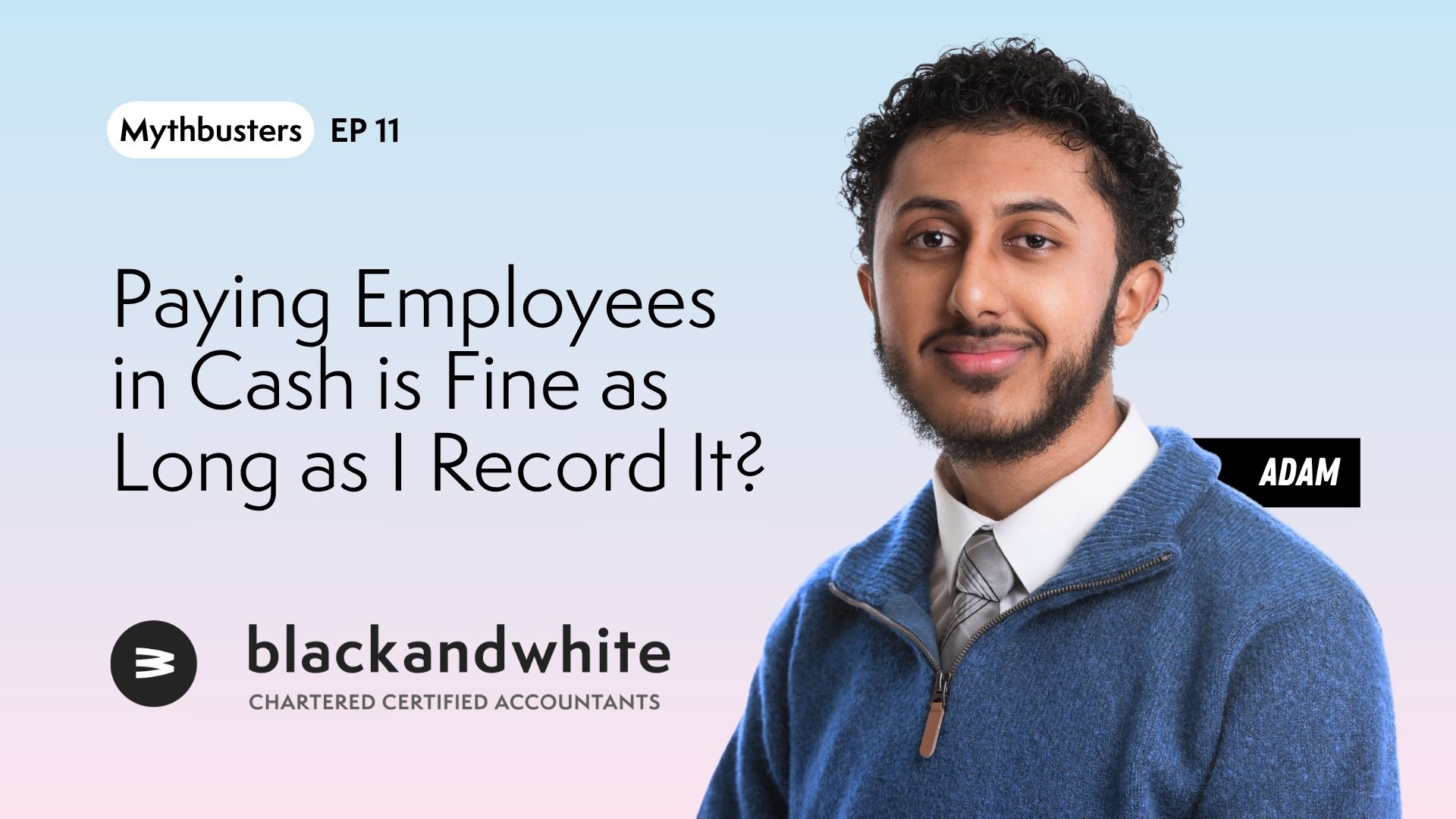Being appointed as a director of a company is a significant role, carrying a host of responsibilities, but what if you’re a director without owning any shares in the company? Can you still influence decisions? What rights do you hold, and what are your legal responsibilities? And what is the difference between a director and a shareholder?
At Black and White Accounting, we work with directors and business owners every day, helping them understand the complexities of their roles and the legal implications of directorship. In this blog, we’ll explore what it means to be a director but not a shareholder, and how you can navigate your rights, responsibilities, and influence within the company.
What Is a Director?
A director is appointed by a company to oversee its operations and make strategic decisions. Directors have legal duties to the company and its shareholders, and they are responsible for ensuring that the company complies with laws and operates effectively.
In many cases, directors are also shareholders—meaning they own part of the company and have a financial stake in its success. However, it’s entirely possible to be a director without holding any shares in the business. This creates a unique situation where your responsibilities may not align with your financial interests, but it’s a common arrangement in larger companies, charities, subsidiaries of bigger organisations, or potentially family businesses for non-family members.
Your Rights as a Director (Without Being a Shareholder)
While directors have specific powers and responsibilities, their rights are very different from those of shareholders. Here’s what you can expect as a director without a stake in the company:
1. Decision-Making Power
As a director, you are typically involved in day-to-day decision-making and the strategic direction of the company. This includes making choices about operations, investments, hiring, and the overall business plan. Your role is to guide the company to success, but your decision-making power is limited to what the company’s constitution or board has outlined.
However, shareholders generally have the final say on significant company decisions. For example, matters like issuing new shares, amending the company’s articles of association, or approving substantial mergers require shareholder approval. As a non-shareholding director, you may not have a vote on these matters unless explicitly granted by the shareholders or board.
2. Right to Attend Board Meetings
As a director, you will have the right to attend and participate in board meetings where company policies and strategic decisions are discussed. While shareholders may vote on major company changes, directors are responsible for managing the company’s affairs on a day-to-day basis, and these meetings are where those discussions happen.
3. Access to Company Information
Directors have a legal right to access company information, including financial statements, performance reports, and any other data necessary to fulfil their duties. Even if you don’t own shares, your position as a director entitles you to stay informed about the company’s financial health and operational standing.
4. Influence Over Operations
Even without a financial stake, as a director, you’ll have considerable influence over the company’s operations, depending on your role. You may be responsible for overseeing key business functions such as finance, marketing, HR, or technology. Your expertise and strategic guidance can be critical to the company’s success, and shareholders often rely on directors’ insights to grow the business.
Your Responsibilities as a Director
Whether you’re a shareholder or not, as a director, you are bound by legal obligations to act in the best interests of the company. These responsibilities come with serious consequences if not adhered to, so it’s vital to fully understand them.
Here are your key responsibilities:
1. Fiduciary Duty
Directors have a fiduciary duty to act in the best interests of the company and its shareholders. This means putting the company’s success ahead of personal interests, even if you don’t own shares. Decisions you make should be driven by what’s best for the business, rather than personal gain or outside influence.
2. Duty to Promote the Success of the Company
You are legally required to act in a way that promotes the success of the company for the benefit of its members (shareholders). Even if you don’t own shares, your primary goal is to increase value for those who do. This can mean taking actions that drive profitability, ensuring compliance with laws, or maintaining a strong reputation in the marketplace.
3. Compliance with the Law
Directors are responsible for ensuring that the company complies with UK laws and regulations, including filing accurate financial accounts, paying taxes, and adhering to employment and health and safety laws. Failure to comply can lead to legal and financial penalties for both the company and directors personally.
4. Avoiding Conflicts of Interest
Even if you’re not a shareholder, you must avoid any conflict of interest between your role as a director and any personal or professional relationships outside the company. You’re required to disclose any potential conflicts and must not use your position to benefit yourself or others at the company’s expense.
5. Ensuring Financial Responsibility
As a director, you are partly responsible for the financial health of the company. You must ensure that the company maintains proper financial records, is solvent, and that any decisions made do not put the company at undue risk. If the company becomes insolvent, you could be held liable if you continue to trade and increase debts.
What You Don’t Have as a Non-Shareholding Director
It’s important to understand what you don’t have as a director who is not also a shareholder:
- No Ownership: You don’t own any part of the company, meaning you won’t benefit from dividends or capital growth unless shares are later granted to you.
- No Voting Rights on Shareholder Matters: You won’t have a vote on issues that shareholders decide, such as the election of directors, approval of dividends, or changes to the company’s constitution.
- No Share of Profits: Unless you negotiate shares or bonuses into your director’s agreement, you won’t receive a share of the company’s profits. Your compensation may come from salary or other agreed-upon perks.
Can You Still Have Influence?
While you may not have the direct financial interest of a shareholder, your role as a director still carries significant weight. Here’s how you can leverage your position:
- Establish Strong Relationships with Shareholders Building trust with shareholders can strengthen your position as a director. If they see you’re acting in the company’s best interests, they may be more likely to consult with you on important matters or take your advice on strategic decisions.
- Be a Key Contributor Your expertise and insight can be invaluable to the business’s success. By consistently contributing to the company’s growth and stability, you may be able to negotiate compensation in the form of shares down the line.
- Focus on Performance Even without shares, your performance as a director impacts the company’s overall success. Focusing on delivering strong results and maintaining the company’s financial health is key to staying influential in your role.
The Bottom Line: It’s a Balancing Act
Being a director without being a shareholder may seem unusual, but it’s more common than you think. While you won’t benefit from dividends or direct ownership, you still hold considerable responsibility and influence over the company’s operations and strategy. Your focus should be on fulfilling your legal duties, promoting the success of the business, and navigating your relationship with shareholders to ensure alignment between the company’s goals and your responsibilities.
At Black and White Accounting, we help directors understand their rights and responsibilities, ensuring they stay compliant with the law while driving business success. Whether you’re a shareholder or not, we can help you navigate the complexities of directorship with confidence.
Let’s Talk: Are you a director without shares? Contact us today for expert advice on your role, your legal responsibilities, and how to protect your interests while driving the company forward.



